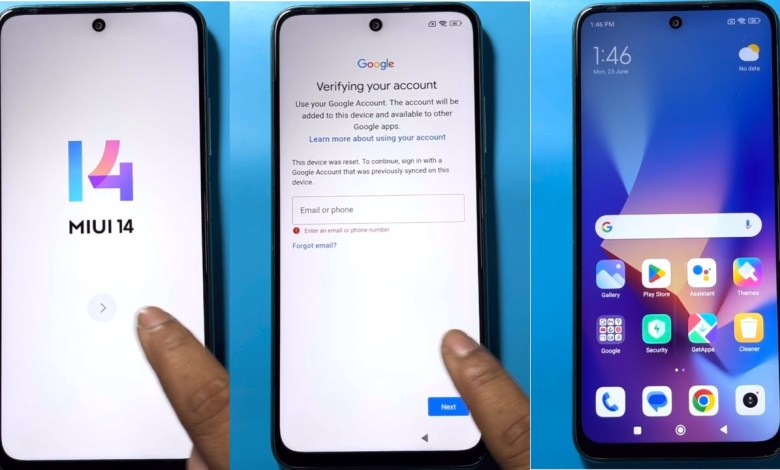Unlocking Secrets: How to Bypass FRP on Redmi Note 10T 5G Without a PC!

Redmi Note 10T 5G Frp Bypass | Without Pc | Google Account Unlock – Letest Frp Bypass Xiaomi 2025
Understanding Music in the Digital Age
In today’s fast-paced digital world, music has evolved far beyond mere entertainment. It serves as a cultural cornerstone, influencing emotions, ideologies, and even social movements. The importance of music is prevalent across all demographics and continues to captivate millions of listeners around the globe. In this article, we will explore various dimensions of music, its transformative power, and the innovations that shape how we experience it today.
The Emotional Spectrum of Music
Music has a unique ability to evoke a wide range of emotions. From the deep melancholy of a ballad to the energetic beats of dance music, the emotional appeal of music cannot be overstated. Research indicates that listening to music can release dopamine, a neurotransmitter that plays a key role in pleasure and reward. This is why we often turn to music during pivotal moments in our lives, whether to celebrate achievements, cope with heartbreak, or simply lift our spirits after a challenging day.
The Therapeutic Qualities of Music
Furthermore, the therapeutic nature of music is gaining recognition in different fields, including psychology and medicine. Music therapy is an established treatment for various ailments, including depression, anxiety, and even chronic pain. Practitioners use music to connect with patients, stimulate memories, and offer emotional release. The healing power of music makes it a versatile tool, creating a safe space for individuals to express themselves.
The Cultural Significance of Music
Music is also a vital cultural artifact, serving as a reflection of human experience across different societies. It carries narratives, traditions, and values, enabling communities to preserve their history while simultaneously adapting to modernity. Genres of music have emerged from various cultural backgrounds, each adopting unique styles and characteristics that signify collective identity.
Music as a Tool for Social Change
Throughout history, music has played a crucial role in social movements. Songs have become anthems for change, fueling protests and inspiring collective action. From the civil rights movement in the United States to anti-colonial struggles worldwide, music has resonated in the hearts of people fighting for justice. Artists like Bob Dylan, Nina Simone, and more recently, artists like Kendrick Lamar and Beyoncé, have harnessed their musical platforms to voice social issues, bridging the gap between art and activism.
The Digital Revolution and Music
The advent of technology has profoundly transformed the music landscape. The way we create, consume, and share music has undergone a significant shift over the past two decades.
Streaming Services: A Game Changer
Streaming platforms like Spotify, Apple Music, and YouTube have revolutionized how we access music. Instead of purchasing individual albums or CDs, listeners can now explore entire catalogs for a subscription fee or even for free with ads. This seismic shift has given rise to a new generation of artists who can distribute their music independently, bypassing traditional record labels.
The Impact of Social Media
Social media platforms have also changed how artists connect with their fans. Artists can engage directly with their audience through platforms like Instagram, TikTok, and Twitter. This creates a more personal connection and fosters a sense of community among fans. Viral trends, challenges, and memes have spawned new types of music marketing, where a catchy tune can become globally recognized simply through social media buzz.
The Future of Music
As we look toward the future, the music industry will continue to evolve, shaped by technological advancements and changing consumer behaviors.
The Rise of AI in Music Creation
Artificial Intelligence (AI) is beginning to play a role in music creation. Tools powered by AI can assist composers in generating melodies or even crafting entire songs. While this has the potential to democratize music creation, questions arise about the authenticity and emotional connection rooted in human-generated music.
The Role of Virtual Reality and Immersive Experiences
Additionally, advancements in virtual and augmented reality technologies could offer new avenues for experiencing music. Imagine attending a virtual concert in the comfort of your home, with immersive 3D visuals to accompany the live performance. This could redefine audience interaction and transform how we experience music entertainment.
Conclusion
Music is an essential part of the human experience that transcends borders, cultures, and time. It evokes emotion, fosters community, and serves as a timeless form of expression. As we navigate through advancements in technology and shifts in societal values, the significance of music only grows stronger. Whether as a listener, a creator, or an advocate for social change, our relationship with music will continue to evolve, reflecting the complexities of our lives and the world around us.
In this digital age, music remains a powerful medium that can transform, heal, and inspire. Let us embrace its potential and continue to explore its boundless possibilities.
#Redmi #Note #10T #Frp #Bypass #Google












